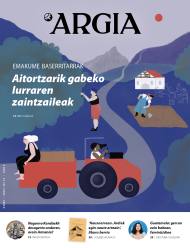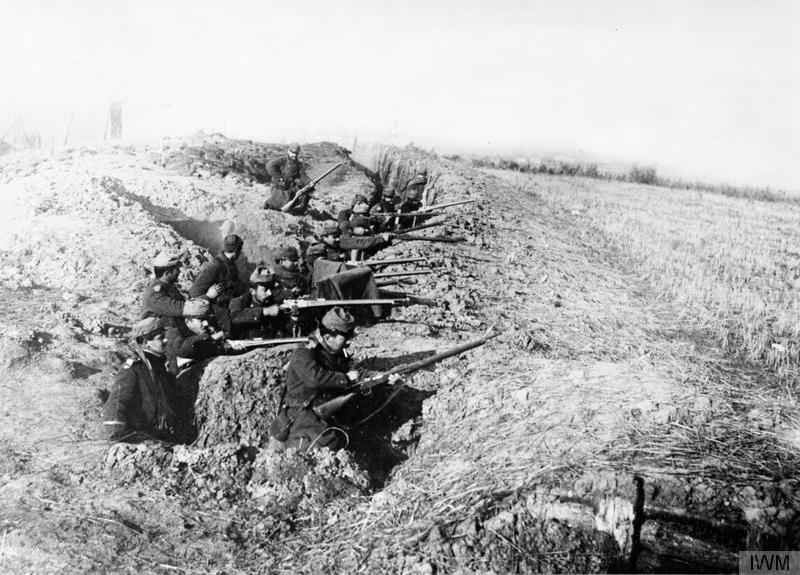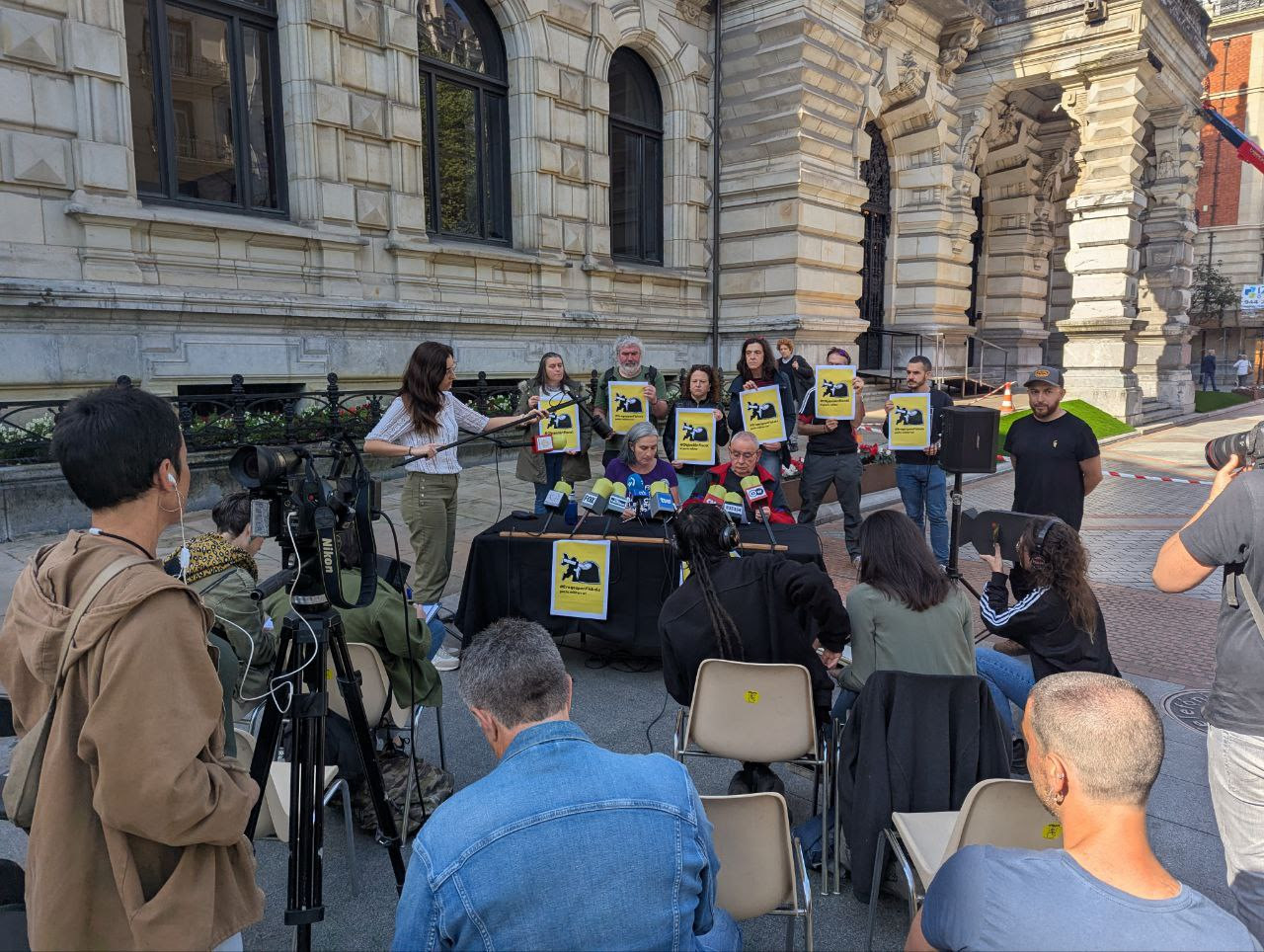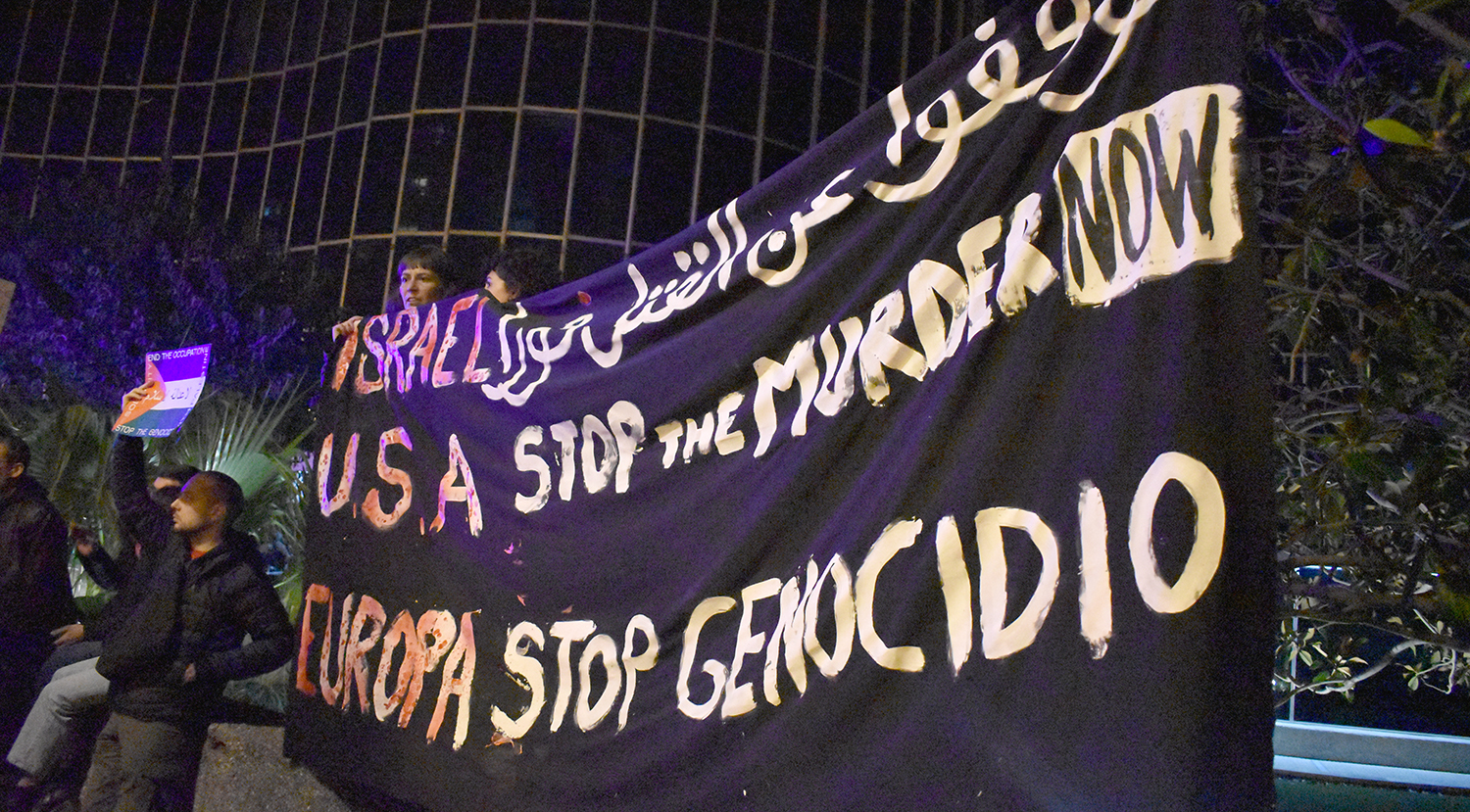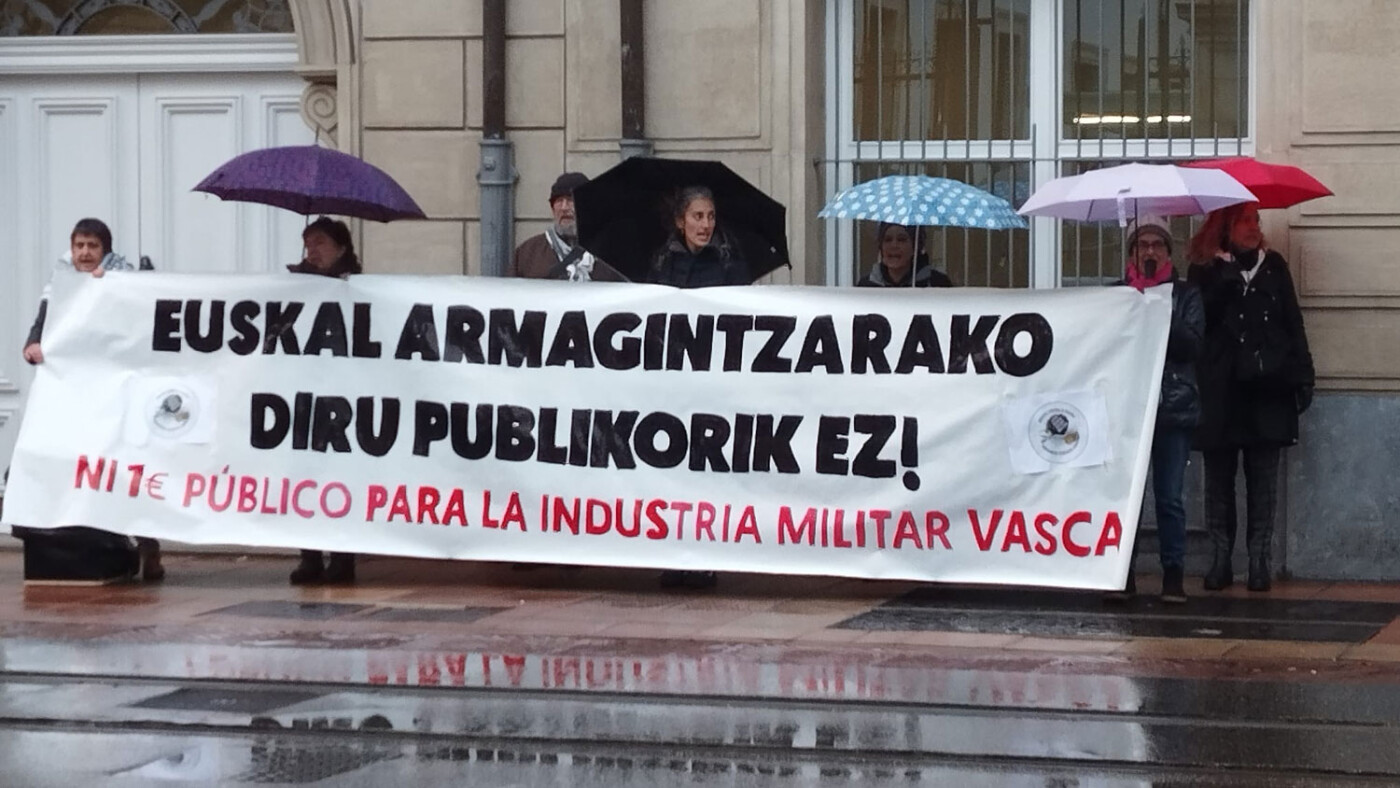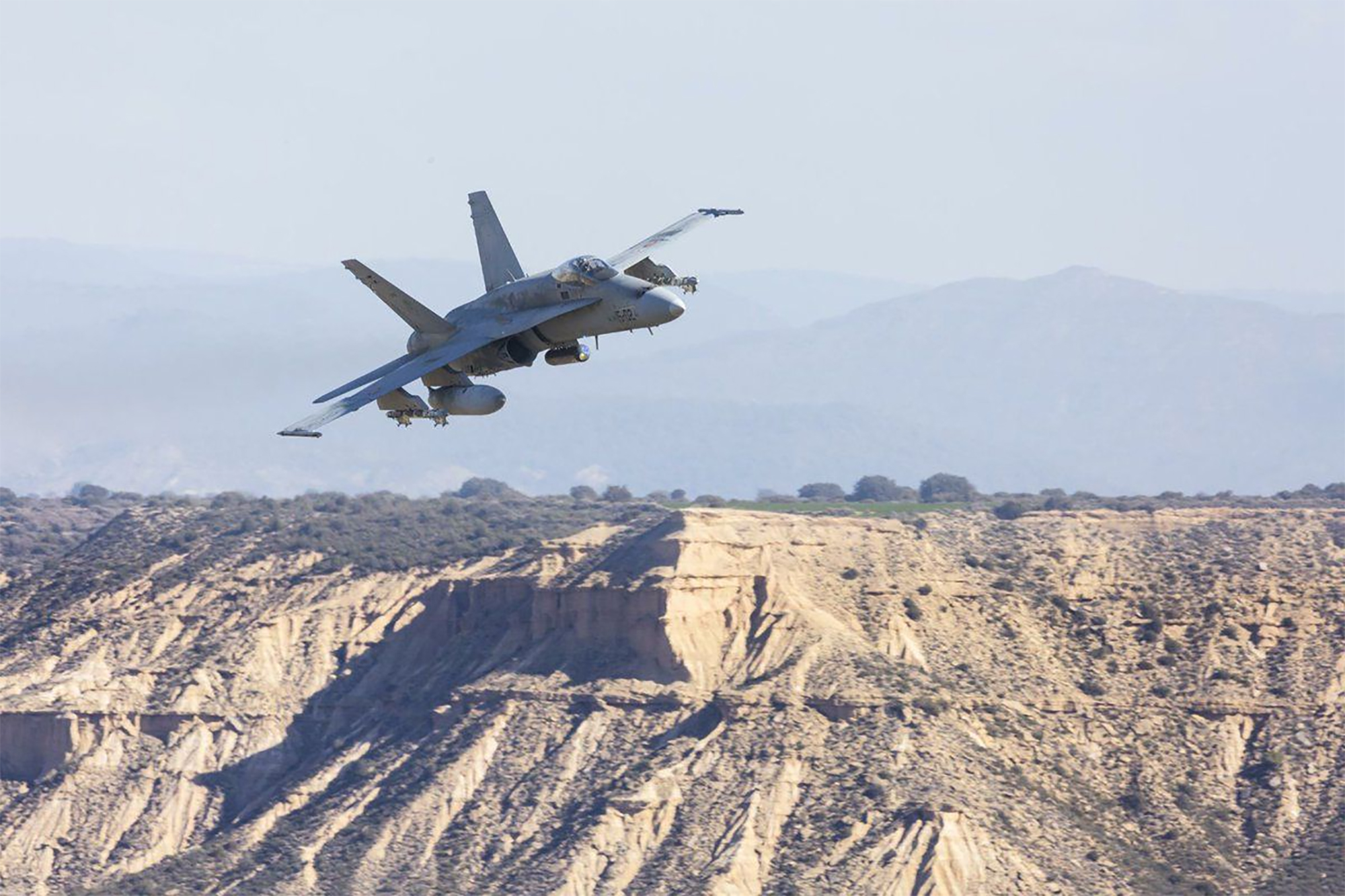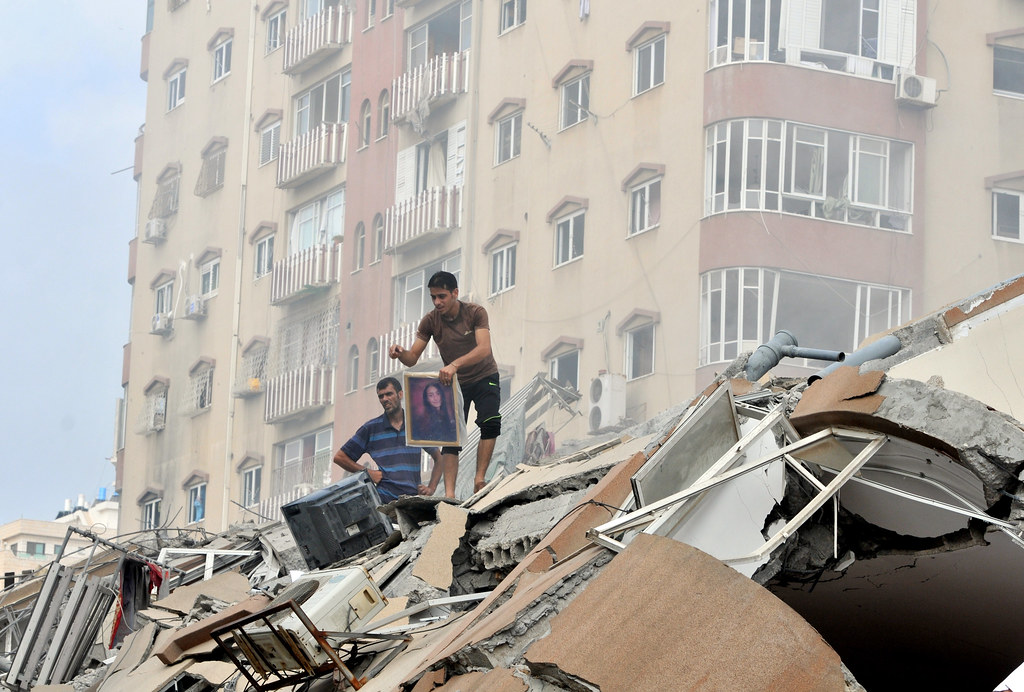Nagorno journalist Karabakh tells us: “Where did you look?”
- We are surprised at the new exodus that is taking place in the complicated puzzle of the Caucasus. Almost all Armenians in Nagorno Karabakh, 120,000 people, have fled after the last attack by Azerbaijan. An ethnic evacuation. But the only umbilical cord they had nine months ago with Armenia, until they closed the Natxin pass and condemned its inhabitants to perpetuate themselves, where have we been looking?
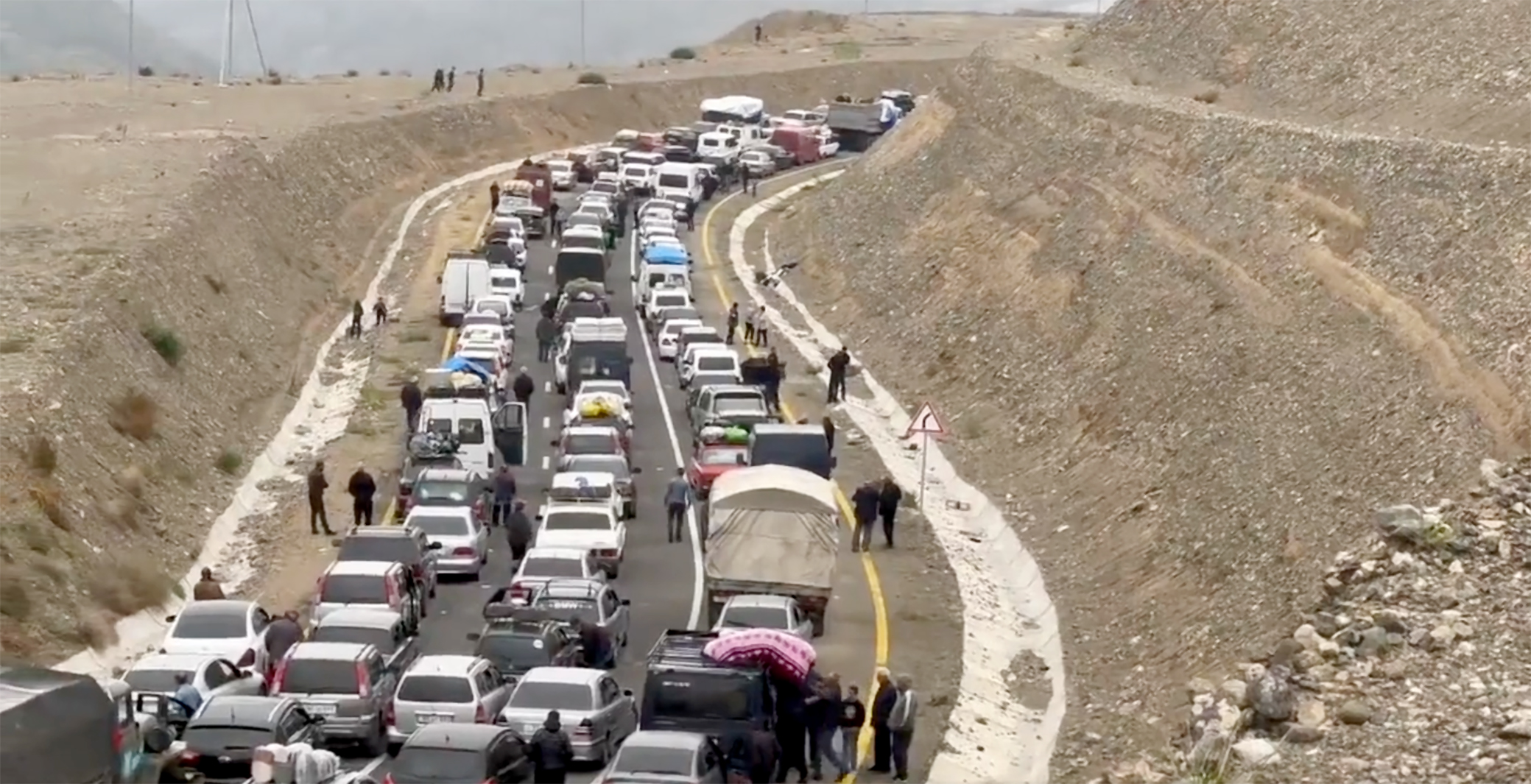
The 24-hour bombardment has been enough for the powerful Azerbaijan on 19 September to erase from the map of Nagorno Karabakh, also called the Republic of Artsakh. Ilham Aliyev’s Azerbaijani government has killed the bloody 44-day war in 2020 from the capital of Baku. Since 1 January the country will not exist politically or as far as the population is concerned, since there is hardly one Armenian left after the most recent exodus from Europe: Over 100,000 people have left their homes in an endless car caravan to Armenia.
Days after the Azerbaijani attack, the British public broadcaster BBC said that "an ethnic Armenian journalist was reporting the blockage of cars" on the border. If we click on the video accompanying the news, we are on the road in Siranush Sargsyan, independent left-wing blog of Stepanakert, capital of Nagorno Karabakh: "As you see, we're still stuck on the road. This exodus is unsustainable not only psychologically, but also because many people will become refugees for the third time in their lives. We have been on this road for 16 hours now and I do not believe that we will reach the border in 24 hours. There are people who suffer from discomfort or are losing knowledge, have diseases and no doctors. Some have had to go back to care for their relatives."
Sargsyan talks about the internal incision caused by the conflict between Azerbaijan and Armenia. But it would be better if the other journalists had heard their SOS call nine months ago, when the Nagorno Karabakh blockade started and not now.
"As you see, we're still stuck on the road. This exodus is unsustainable not only psychologically, but also because many people will become refugees for the third time in their lives."
On 12 December 2022, the Acerbic military, disguised as environmental activists, closed the passage of Latxin, the only road linking Karabakh with Armenia. 400 tonnes of food and materials were transported on a daily basis, so thousands of Armenians for long months without basic need (gas oil, gas, milk, medicines, compresses...) have caused a great death.
Carlos Zurutuza, a former friend and collaborator of ARGIA, has perfectly summed up the worldview of what was happening in this mountainous country: "Nagorno Karabakh, or why journalism is useless when it comes late," he titles an article in Jot Down magazine. In other words, the local journalists and the Armenian diaspora did not stop drawing the attention of the main media, but in vain, and on the occasion of the humanitarian crisis that the UN was causing in Azerbaijan last August, it was late.
Following the ethnic cleansing strategy, Baku opened the Latxin border a few days before the start of the attack for the population to troop the country: "I believe that if foxes have allowed the Armenians to leave without cutting their nose and ears (this has happened before), it is because the world, although late, has its eyes on them," says Zurutuza. If it had been placed on that blockade before, Baku may not dare to bomb. Nobody watches when you do the crime. You just have to go back three years to realize."
Under the threat of genocide
The conflict in Nagorno Karabakh comes from the 1990s, in the context of the dissolution of the Soviet Union. In that first war, which caused at least 30,000 deaths, the Armenians defeated and conquered the territory, when the first great distinction was made between the two peoples, the first exodus of both peoples. Then there was the short war of 2020, but in September of that year the media were too busy with the American elections and the new wave of COVID-19.
Azerbaijan ' s modern army, burdened by gas reserves, constantly bombed Stepanakert and its surroundings, and Baku appropriated two-thirds of Nagorno Karabakh. The only third left to tread was to eliminate it from hunger and cold.
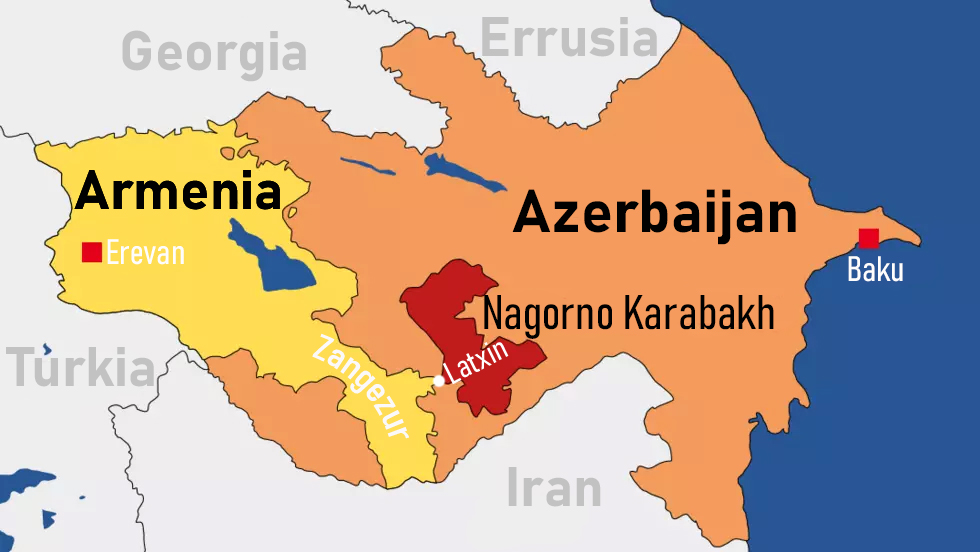
Siranush Sargsyan has collaborated in such well-known media as CNN, OpenDemocracy, or Newsweek, and we've read articles and interviews in the weekly The Armenian Weekly, on the New Revolution portal or, more closely, in the free digital journal of AraInfo Aragonia.
"Antibiotics, antipyretics, medicines for infants, food, bumps and medicines for the chronically ill," he said when the blockade began in December, after talking to a pharmacist. The number of miscarriages grew so much before July that "it's three times the year before," a gynecologist told her. However, he says that the hardest aspect of the blockade has been psychological: "Our people are used to material shortages, but now we live mostly under the threat of genocide."
The journalist talks about another blockade: With the information vacuum generated after the 2020 war and, even more so with the blockade, to prevent international journalists from accessing Nagorno Karabakh. "That's why I started writing to tell what's going on here."
The journalist talks about another blockade: With the information vacuum created after the 2020 war and, even more so with the blockade, to prevent international journalists from accessing Nagorno Karabakh
Sargsyan is now reporting on the X network of the Armenian exodus every day. In her last corner hangs the image of a grandmother: "During the nine months of Azerbaijan's peak, Aneskha, 90, has had one single goal: to see her son again. After the invasion he arrives in Goris, Armenia, and in a year he can hug his son for the first time. Then he dies in his arms."
After the disappearance of Nagorno Karabakh, many believe that Armenia will be the next piece to fall into the Caucasus games table. There are not enough references to the Armenian genocide of the early twentieth century. The remoteness of Nikol Pashinian’s government to Russia and the dependence on Western European gas have altered the geopolitical situation. Azerbaijan can use it to relate not only to the words of its brother Turkey, which is a talking Turkish, but also to the lands. To do so, he can assume the Armenian catwalk of Sangüesa that separates the slave from Nakhitxevan. Where are we going to look at citizens and journalists this time?
Hainbat ikerketak erakusten dute inbertsio militarraren gorakadak osasuna edo hezkuntza bezalako sektoreen suntsipena dakartela herrialde batzuetan.
“Bag of resilience”, “survival manual”, “backpack of evacuations”: that’s what you can hear in the mouths of the authorities in recent weeks.
Among the declarations of the past month, the European Union has asked the population to prepare a “survival kit” to... [+]
My mother always says: “I never understood why World War I happened. It doesn't make any sense to him. He does not understand why the old European powers were involved in such barbarism and does not get into his head how they were persuaded to kill these young men from Europe,... [+]
Bizitza erdigunean jartzeko abagunea ikusi genuen feministok zein ekologistok Covid-19 pandemia garaian. Ez ginen inozoak, bagenekien boteretsuak eta herritar asko gustura itzuliko zirela betiko normaltasunera. Bereziki, konfinamendu samurra pasa zutenak haien txaletetan edo... [+]
At the end of June we finished the first parts of the book Conversión de la industria militar en Euskal Herria para no fabricar más guerras (Adaptation of the arms industry in the Basque Country so as not to create more wars) La guerra is coming! It explores and investigates... [+]
Intsumituek denbora luzez egindako borroka gogorra eta mingarria izan zen, baina irabazi zuten, eta garaipen hura behin betikoa izango zela uste genuen, atzera bueltarik gabea. Baina badirudi, politikari batzuen ahotik aterata, eskalada militaristari gorazarre egin eta berriz... [+]
Europako Batzordeak aurkeztu duen plana ustezko gerra edo hondamendi baten aurrean “bizirauteko” kit batetik harago doa: hogeita hamar neurri proposatu ditu eskoletan, enpresetan eta herritarren artean militarismoa eta beldurra sustatuko dutenak.
“Ez dugu gerraren aurrean etsi nahi, ez dugulako hilerrietako bakea nahi”, dio manifestuak, eta agintariei irtenbide politiko baten alde lanean jartzeko eskatu diete. Sinatzaileen artean daude Delàs institutua, Gernika Gogoratuz edo Ongi Etorri Errefuxiatuak... [+]
Orain dela 20 bat urte, berrikuntzaren inguruan master bat egin nuen. Bertaraturiko gonbidatu batek esan zigun gizakion historian berrikuntza teknologikoaren eragile handiena gerra izan zela. Gerra, halaber, eragile handia da botere harremanen berrikuntzan.
Berrikuntzaz ari... [+]
Israelek eraso masiboak abiarazi ditu berriro ere Gaza osoan: Khan Younis eta Rafan Gaza hegoaldean, Gaza Hirian iparraldean eta eta Deir el-Balah-n erdialdean. "Familiak seme-alaben gorpuzkiak eskuetan zituztela iristen ziren ospitalera", adierazi du lekuko batek.
1986. urtean Espainiako Estatuak NATOn jarraitzearen aurkako botoa eman zuen euskal gizarteak. Denborak ematen duen perspektibak oraindik ez du azaldu zeintzuk izan ziren gizartearen arrazoi sakonak gerra erakundean parte hartzeari uko egiteko.
Felipe Gonzálezen... [+]









